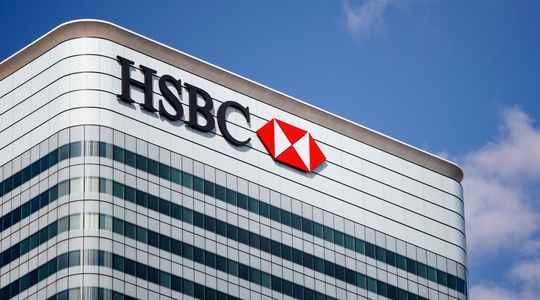Title of the presentation: “Why investors should not be concerned about climate risk.” Date: Friday, May 20. The global head of responsible investment at Swiss bank HSBC, Stuart Kirk, is invited to speak at a business forum organized by the British business daily, the FinancialTimes. The event normally aims to reflect on how to invest your money while respecting the environment. A big question to which the HSBC representative seems to have a confusing view.
The impression is confirmed very quickly. Collar of his unbuttoned shirt, hand in the pocket behind his desk, Stuart Kirk lets loose in all relaxation: “Climate change is not a risk we need to worry about. It’s heresy!”. The formula immediately appeals to the audience.
“I have the impression that it is getting out of control, the constant reminders that we are doomed”, continues the banker in front of the room, who regrets the extension of the regulations to fight against global warming and the growing importance of this issue in economic circles. For him, the emergency for the globe is elsewhere. “I work at a bank that’s being attacked by cryptocurrency. We’ve got US regulators trying to stop us. We’ve got inflation in the pipes and I’m being asked to spend time…looking at something that’s going happen in 20 or 30 years.”
“What does it matter if Miami is six meters under water in a hundred years? Amsterdam has been under water for ages, it’s a very nice place. We will adapt”, Stuart Kirk, director responsible investing at HSBC
Stuart Kirk prefers to believe in the future adaptability of man, capable of finding solutions in times of crisis. “What does it matter if Miami is six meters under water in a hundred years? Amsterdam has been under water for ages, it’s a very nice place. We will adapt”, gets carried away the director of responsible investment. Before concluding: “Throughout my twenty-year career, I have always heard a crackpot tell me about the end of the world.”
Cascading reactions
Faced with the cavalier position of his employee, the group’s general manager, Noel Quinn, reacted on Sunday during a hastily organized press conference. Kirk’s statements “are not in line with HSBC’s strategy and do not reflect the positions of the management of HSBC or its asset management arm. Our ambition is to be the leading bank leading the transition to carbon neutrality”, wants to reassure Noel Quinn. The bank suspends Stuart Kirk from his duties in stride.
The next day, a shower of comments and attacks fell on his business despite the denial. “The fact that this comes from the world director of responsible investment makes one shudder”, points out Veronica Oakeshott, spokesperson for the NGO Global Witness before being more virulent: “a whole sector continues to finance deforestation, fuels fossil fuels and climate collapse… We need governments to legislate and stop finance from supporting climate-destroying corporations.” More generally, through the controversy sparked by Stuart Kirk, the entire banking community is singled out for its practices that are not very respectful of the environment.
Greenwashing and carbon footprint
“The first individual carbon footprint, without us knowing it, is our bank account. Our money is not at all neutral with regard to the climate. It is a fundamental lever for the ecological transition” , explained Alexandre Poidatz, ecological transition financing advocacy officer for Oxfam, to National Geographic. According to Oxfam France, the activity worldwide of the six largest banking brands in France represents eight times the greenhouse gas emissions of a country like France.
Banks are also regularly singled out for the lag in their concrete actions compared to the announcements made to fight against climate change. At the heart of the critics: the financing links maintained with petrochemical groups, heavy contributors to the proliferation of greenhouse gases.
This fall, the Global Witness association thus pinned BNP Paribas, yet presented as an “ecological ambassador” of the CAC 40, because the group finances up to five billion euros from agro-industrial companies linked to deforestation. The banking community and Stuart Kirk have undoubtedly learned the hard way this weekend that climate change can have irreversible effects on the rest of life…
